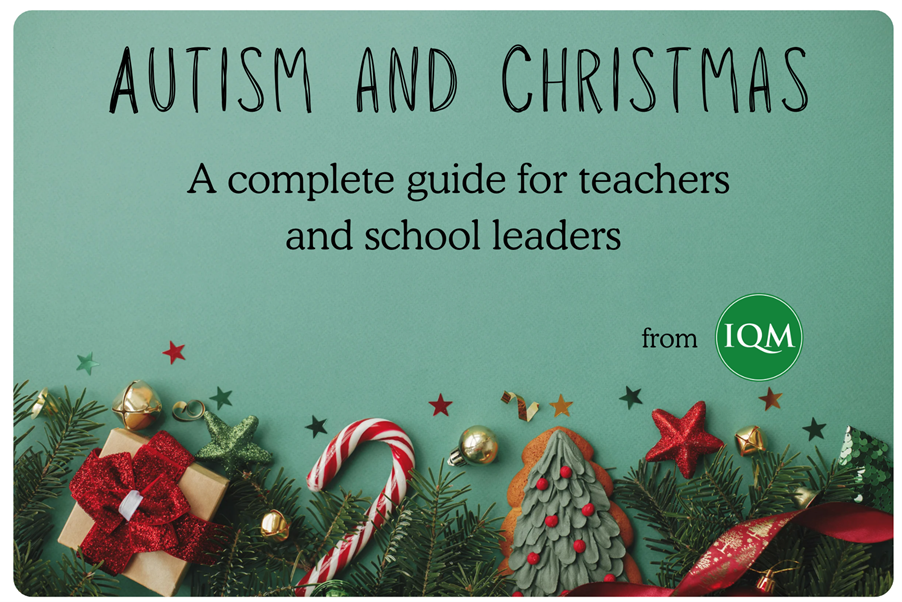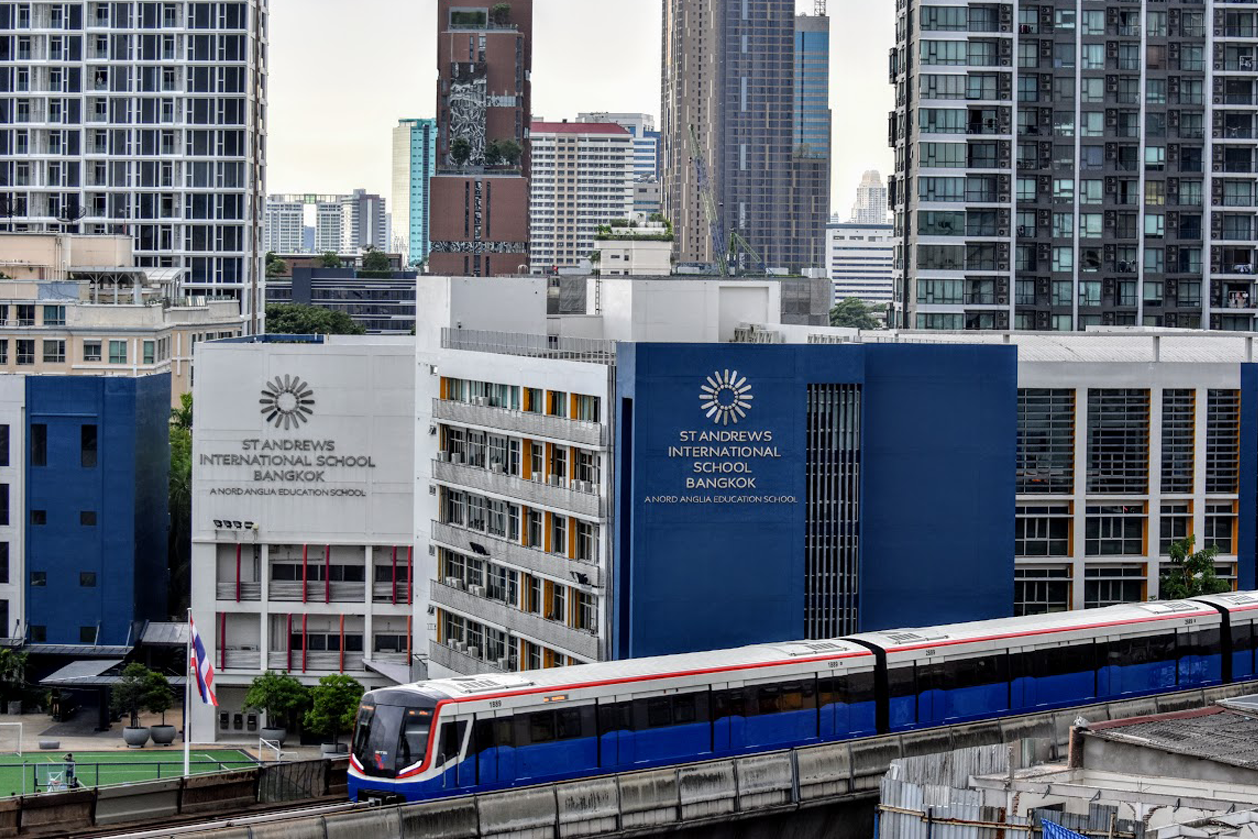Who is IQM?
IQM is the only national inclusion award in the UK. For over 20 years and in over 20 countries, schools, MATs and Local Authorities use the Inclusion Quality Mark to recognise exemplary inclusive practice.
Get in touch for your FREE school information pack today.
Lismore College Achieves Flagship Status
January 15, 2024
Lismore College has achieved the Inclusive School Award with Flagship status.
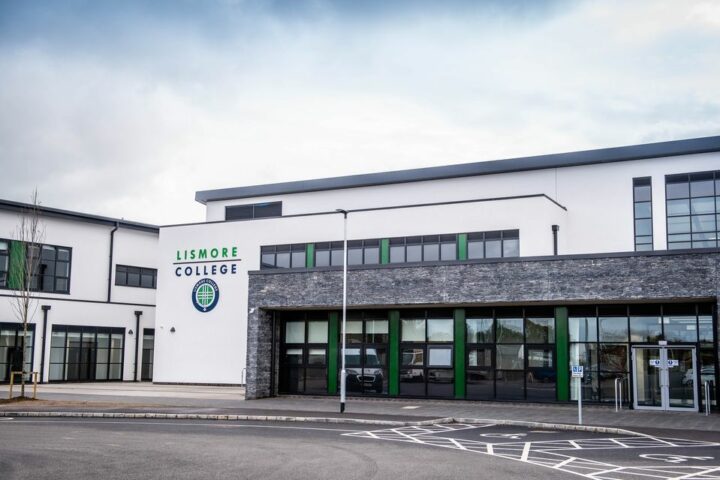
Spectacular New School Building
Our Assessor said it was a great pleasure to visit Lismore College once again, and to view the spectacular new school. The whole school moved into the new building in mid-August and early September and many of the staff including the Principal and her team had spent much of the holiday organising and moving.
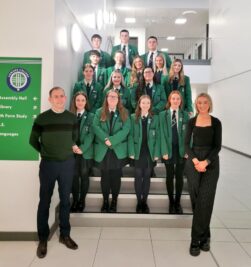
The senior team has changed and expanded since our Assessor’s last visit. The retirement of the long-serving Deputy meant her place has been taken by another long-serving member of staff who was the previous SENCo. In addition, the team now includes three phase leaders and the new Safeguarding Lead and SENCo. They get on well and are very supportive of each other.
Positive Reputation
Lismore College is oversubscribed and their increasingly positive reputation for meeting the needs of students with SEN means that they have been admitting well above their PAN number in every year group. Statemented students can, and do, get school places even though they are already oversubscribed.
The teaching staff are a very stable group and most stay a long time at the school. This has an effect on the school budget, but the Principal appreciates the breadth of experience her staff bring. This is also a draw for parents, many of whom are past pupils of the school. Attracting and recruiting new teachers particularly in subjects such as Maths and Science is very difficult, as indeed are temporary staff to cover maternity leaves.
The college serves a disadvantaged community, and the cost-of-living crises has hit hard with many families finding it very difficult to manage. The school tries to support them as much as they can and have a room full of new shoes and recycled uniforms that parents can access. These are much in demand.
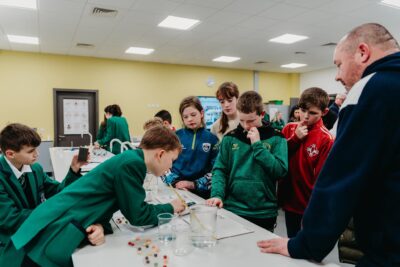
Speaking to the new SENDCo our Assessor asked her what the Learning Support Team looked like and who it consisted of. She explained there are 81, 24 in Year 8, children with Statements of Special Need (not including the 12 in the Unit) and there are 50 Teaching Assistants/Learning Support Assistants. They are largely an experienced team, and most are used to support the students – mostly on a one-to-one basis.
Training
There has been ongoing training for teachers within the working-to-rule context and the first training day was given over to providing information about the needs of Year 8 pupils transferring from Primary School. The fact that there were 24 children with statements in this group meant that they needed detailed information about these children. The majority of teachers are very experienced and have a good understanding of what needs to be done to support all students however, the SENCo agrees that ongoing training of teachers and TA/LSAs is vital
The next meeting was with the Head of the Learning Support Centre and Autism ARP. She is delighted with the new facilities in the LSC which is right by the front entrance of the college. The new area has five rooms which house five classes. It also has a sensory room and other smaller break out rooms. Currently, they cater for about 50 students which is eight more than this time last year.
The addition of the KS5 room has supported many students who have a range of abilities (including high IQ), some have limited speech and other special needs, so the curriculum has to be bespoke to the individual students. Staff do lots of planning and have lots of discussion with students, parents and professionals in helping decide which courses to offer. All have individual learning plans.
Transition
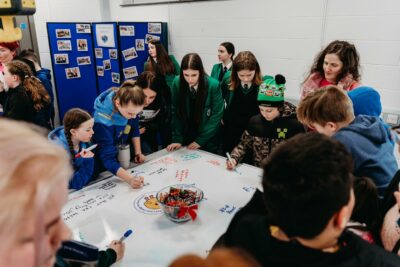
The next meeting was with the Head of KS3 who is an Assistant Vice Principal and is new to the leadership team. She now line manages three Heads of Year and their Form Tutors as well as the Learning Support Centre Coordinator. She is also a part of the safeguarding team.
As the Assistant Principal for Key Stage 3, transition from primary to secondary school falls under her remit. There are almost 22 feeder schools but about four or five main feeders. There is a transition coordinator and the Head of Year 8 who are assisted by members of SLT and other staff who do a lot of the visits. The staff make sure they meet with Year 7 teachers and the primary SENCos as required to gather information about individual students. In addition, there are three transition mornings and a full programme of taster lessons and other activities. There is also an Open Evening. Some of the Year 8 students go along with the transition team to make presentations to Year 7 pupils about what life is like in Lismore College.
Pathways

The next meeting was with the Head of KS4 (11 & 12 students) and is a member of the senior team. She oversees all curriculum and pastoral matters as well as transition from Year 10 to Year 11. She said there are two curriculum pathways for students. A lot of work and effort goes into ensuring students choose the correct pathway for them. The don’t want to set anybody up for failure.

This next meeting was with the Learning Mentor who told our Assessor she loves her new nurture room. The nurture room can hold up to 24 vulnerable students at any one time, although it is normally far less than that. Vulnerable students are invited informally to come to the room at break and lunch times, especially when they find the playground too busy and uncomfortable. A Classroom Assistant comes in and helps her at lunch and breaktime when it’s at its busiest.
During the school day when students are in lessons, she welcomes those who have time-out passes who need to take a little break from the lesson. Other students welcomed are those who are on a phased return to school or ones who can’t cope with a long double lesson. Teachers get to know who these students are and give them the ‘nod’ to leave the room without any fuss. She keeps a record of who comes into the room and informs the teacher that they have arrived and have been no trouble.
Find out more about the IQM Inclusive School Award
If your school is interested in obtaining the IQM Inclusive School Award or you wish to talk to a member of the IQM team please telephone:
028 7127 7857 (9.00 am to 5.00 pm)
or email: admin@iqmaward.com for further details.
Want more information on the IQM Award? Click here to request your free IQM information pack.
Other Posts

About IQM
The only national award for inclusion in the UK, IQM has been committed to recognising exemplary inclusive schools for over 20 years and in over 20 countries around the world. The three awards allow schools and organisations to celebrate their inclusive practice against nationally recognised framework.
Site Links
© 2026 Inclusion Quality Mark | website developed & cared for by digidoda

